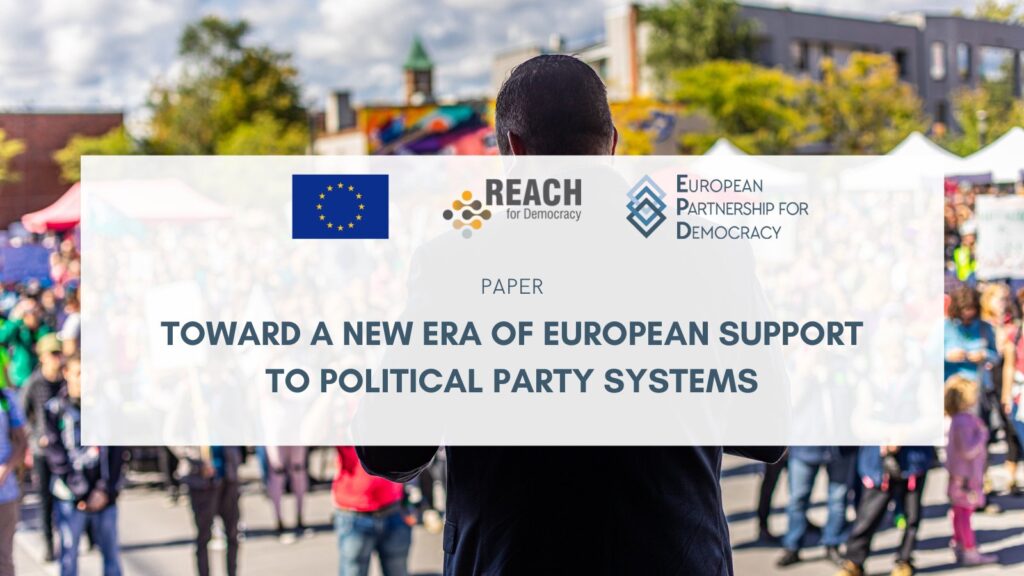A new era of European support to political party systems: A joint paper

Political pluralism is a cornerstone of any democracy. And the political party system is a way of channeling the diversity of voices and interests in a society. But, despite this, support to political parties and multiparty systems has traditionally been an underdeveloped part of the external assistance of the EU and its Member States.
Today, the EU is recognizing that it needs to step up support to the political party system. And it understands that this will be crucial, if it wants to meet its development and foreign policy objectives, like policy reforms or conflict mediation.
So, to provide guidance for EU as it makes this change, NIMD has joined our fellow members of the European Partnership for Democracy (EPD) to release a joint paper.
Toward a New Era of European Support to Political Party Systems draws on the lessons learned by NIMD and our partners in the EU-funded REACH for Democracy project, as well as EPD’s political party support community. The paper analyzes where party support stands, where it has been successful, and where to invest in the future.
We also include a list of recommendations to EU policy-makers to help them develop future actions and frameworks.
Main findings
- COVID-19 has deepened existing trends of restricted democratic space. These trends include polarized political debate; the rise of populist discourse; and restrictions on political and civil rights. Political parties play a key role in this. Because they can influence these trends, or find themselves on the receiving end of restrictions.
- Organizations who run programmes to support political parties see limited financial resources.
- Improve inclusion in political parties is key. For this, strengthening the ability of under-represented groups to have a seat at the policy-making table is key. And it is important to address the written rules and unwritten practices that exclude these groups from participating in the political arena in the first place.
- To improve electoral integrity, we need long-term efforts to ensure that political parties promote a level playing field.
- Inter-party dialogue and multi-stakeholder dialogue will be key to improving dialogue and cooperation. And these are highly relevant in the context of EU objectives.
Key recommendations
- Integrate political actors and parties into development programmes. This can be done by engaging parties in development programmes, or streamlining party work into programmes on thematic issues.
- Think and act long-term. Improving political action and behaviour takes place in the context of slow moving cultural and institutional practices.
- Programme with parties’ incentives in mind. Triggering structural change within parties in favour of inclusion, electoral integrity and cooperation is possible. But it is important to consider the needs and interests of politicians in order to successfully challenge the status quo.
- Do not focus exclusively on political parties. That means that donors and political party support organizations must remember that future aspiring politicians often emerge from other organizations or organized groups.
- Work directly with parties themselves, and set clear parameters to work with them.
For complete list of recommendations, see the full paper here.
